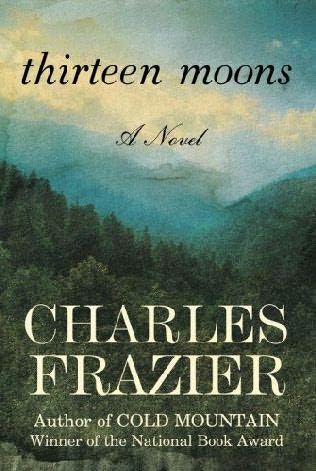 Florida
Florida by Christine Schutt is a fictional memoir about a girl named Alice. When Alice is 10-ish, her mother is committed to a psychiatric facility. With her father's earlier death (which may not have been an accident), Alice is essentially orphaned and from then on is shuttled around the homes of relatives in what she calls her "sleep-over life." They’re a wealthy family, but frugal with affection and attention. She comes of age mainly in her grandmother Nonna's home with its three floors, eleven baths, and countless bedrooms but little in the way of company – Nonna was rendered speechless by a stroke. The nearest thing she’s got to a friend or a parent is the family’s chauffeur, Arthur. She consoles herself with books and telling stories of her own as she struggles to define herself into adulthood. Schutt’s slim novel is a sort of “portrait of the artist as a young woman” told in fragmented prose-poetry meant to approximate the jumbled, chaotic non-structure of memory.
The best thing about this novel is its amazing sentences. The author has a marvelous facility with language, and it shines brightest in her uniquely rendered descriptions of things and places. Also dialogue. Her words
sound beautiful, and they conduct an electrical charge. They feel like pinpricks, sometimes like a bruising jolt from a defibrillator. Truly, there's more poetry than prose in this book. In fact, there are entire reviews that focus solely on the poetry of her language, as in the following brief discussion of these two sentences: “I know about snakes. I take a late-night swim in the lap pool and astonish myself with the color of my skin.”
Here, “lap pool” turns back on itself sonically, and “snakes” resonates
recursively with “skin.” If one is going to adopt poetic techniques for writing
prose fiction, these are the kinds of effects, unlike rhyme, that a reader feels
well before knowing how it was done. (from Verse magazine's blog)
One of the book’s failings is its all-but-nonexistent plot – which is fine, really. Schutt is experimenting with language and with representing memory as its really experienced, in fragments, so a good plot really isn't germane. Another, more serious issue is indistinct characterization. I didn’t get a good sense of her mother and Arthur, despite the fact that most of the memory-fragments revolve around them. Even the narrator, Alice, is murky. And worse, unsympathetic. She’s thoughtless of others, self-absorbed. So although this book does have some insightful moments and a nice ending, the absence of compelling characters made it somewhat disappointing for me.
Like I said,
Florida is best appreciated for its beautiful sentences. And there are
many very good ones. But do I really want to read a whole book of beautiful sentences if they don’t, taken all together, have much impact? To me,
Florida was more affected than affecting.
Anyway here’s an excerpt – a fine example of her poetic prose from a randomly selected page (really). This is a scene where Arthur is driving Alice around. She asks him to take her back to where she used to live, or take her to her mother in the “San.” Arthur is hesitant to be back late, but says finally, “All right then, I’ll show you something.”
All ways were dark, but this way deeply. We only knew what things were as we passed them, dark stands of trees, rows of mailboxes, wooden markers, the start of hills – up, over, over and down – down a narrow, brambled road, as in a story, abruptly turning and traveling upwards again to a gawky house with finials, deep porches, churchy windows. Here was a spinster closed for winter. I couldn’t see inside although I tried.
“This is where your father came from,” Arthur said, and I was amazed. My father, the mysteriously dead and only ever whispered about – Arthur knew where Father came from.

 This books convinced me that I love Allende's books, and will most likely read all. :-) Because it links families, characters and plots from both The House of the Spirits, and Daughter of Fortune, I felt like Cris did with Paul Auster's book; like I was putting together a puzzle. So fun! Allende mostly left out magical realism, but somehow it seemed to work even better without it, and I didn't really miss it. As in all of Allende's books which I've read, the celebrations and tragedies of love (romantic and familial) were the most compelling themes for me, and one of the reasons I keep coming back to Isabel Allende.
This books convinced me that I love Allende's books, and will most likely read all. :-) Because it links families, characters and plots from both The House of the Spirits, and Daughter of Fortune, I felt like Cris did with Paul Auster's book; like I was putting together a puzzle. So fun! Allende mostly left out magical realism, but somehow it seemed to work even better without it, and I didn't really miss it. As in all of Allende's books which I've read, the celebrations and tragedies of love (romantic and familial) were the most compelling themes for me, and one of the reasons I keep coming back to Isabel Allende.




